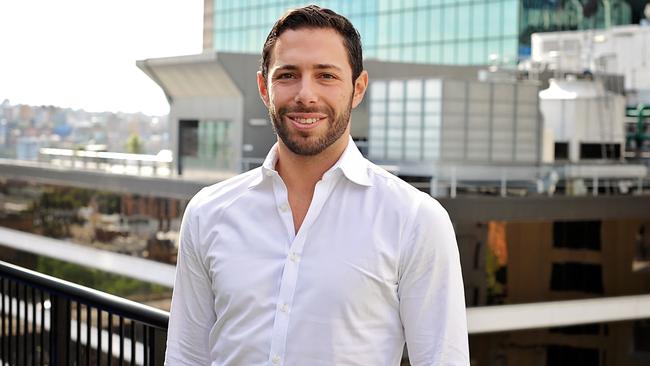
The businesses came together in 2021, creating a combined mortgage broking group with a network of franchised stores as well as a much smaller online-only channel.
The logic made some sense at the time, but strong deal execution has been lacking, leading to the mess that is the current state of play. Some of the failure can be linked to not taking staff on the journey or retaining the strength of the Aussie brand in the market.
Only now is Lendi starting to ramp up its use of the Aussie branding throughout its business.
The latest accounts show the scale of the issues. Lendi’s after-tax losses ballooned to $168.6m for the 12 months ended June 30, from being in the red to the tune of $92.3m in the year prior. The result was marred by a huge impairment on goodwill and intangible assets, which was $143m.
The results showed the bulk of that related to the “remaining goodwill related to the merger in 2021” being fully impaired, resulting in a writedown of $139m. The document also referred to lower-than-expected mortgage settlements in the 2024 fiscal year and the expectation that “subdued credit conditions” may persist in the short to medium term.
Even removing the $143m impairment charge, Lendi’s losses amounted to $26.4m before tax.
The total loan book edged up 2.5 per cent to $100.6bn for the fiscal year, while revenue increased 4.1 per cent, marking very few bright spots in the results. Gross mortgage settlements dropped 11.7 per cent.
Lendi chief executive David Hyman said: “Lendi Group reported strong financial results in FY24 including loan book growth to over $100bn and EBITDA (earnings, before interest, tax, depreciation and amortisation) uplift on the previous year.
“As a result, net cashflow has also improved by 121 per cent. This result reflects our focus on strategic initiatives and disciplined operational management, which delivered a reduction in expenses of 15 per cent YoY (year-on-year).”
His comment on earnings doesn’t pass the pub test, given EBITDA was up in fiscal 2024 but remained negative. EBITDA was minus $5.4m for the 12 months ended June 30, an improvement on minus $35.5m the prior year.
Net cashflow from operating activities was higher, though, and positive at $2.8m, up from minus $13.2m in the prior period.
While the mortgage market has had its challenges as interest rates remained higher for longer, other broking groups have maintained profitability.
ASX-listed AFG, for example, posted an after-tax profit of $29m for the 2024 fiscal year, down $8.3m from the prior period.
Prior to merging with Lendi, Aussie is believed to have been making pre-tax annual profit of about $52m, while maintaining a sizeable marketing budget.
Mergers are complicated and synergies and cultures take time to gel. But in this instance, the results are yet to show the combined business is on the right trajectory.
It’s a wonder Lendi’s shareholders aren’t losing patience.
Following the merger, Commonwealth Bank emerged with 42 per cent of the combined entity, while ANZ’s external venture capital unit and Macquarie Bank held smaller stakes. CBA previously owned 100 per cent of Aussie after buying it from John Symond in tranches over several years.
The Lendi results also referenced a new external debt facility, which sources said was secured with a large global private equity firm. Lendi declined to comment on the lender.
Culturally, Lendi is also navigating issues with employees and franchisees.
Last month, a large group of Aussie franchisees wrote to Lendi’s board demanding answers about how the group was being run.
The franchisees sought responses and the board’s position on matters raised, including whether Lendi’s marketing practices and app were “consistent and harmonious” with Aussie’s franchise agreement.






The merger of Lendi and the better-known Aussie Home Loans looks to have failed dismally, at least if the latest financial accounts lodged with the corporate regulator are any guide.